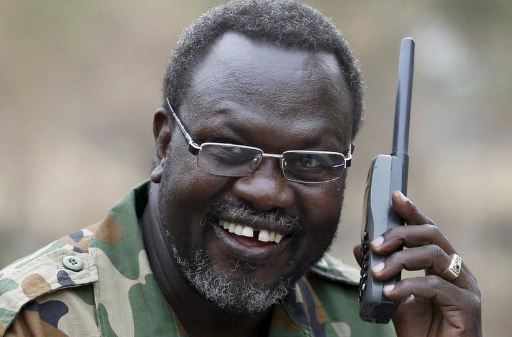BY MAHMOUD AKOT
Since South Sudan’s independence in 2011, the country’s political landscape has been filled with challenges and power struggles. Among the most controversial figures in this landscape is Dr. Riek Machar, the First Vice President, and leader of the opposition at various stages of the country’s history. Despite his central role in South Sudanese politics, questions arise as to whether Riek Machar is the right leader capable of uniting the nation and leading it toward a better future.
Machar’s political history is filled with contradictions and controversial decisions, raising doubts about his ability to unite a South Sudan torn apart by ethnic and political conflicts.
A history of political defections
Riek Machar has a long and complex history of political defections. In the early 1990s, he defected from the Sudan People’s Liberation Movement (SPLM) led by John Garang and led a rebel faction that supported the Government of Sudan government in Khartoum. At the time, this move was considered a betrayal of South Sudan’s liberation cause. Although he later rejoined the SPLM, this defection left a black mark on his reputation as a leader striving for national unity. Such internal divisions contributed to prolonging the civil war and exacerbating divisions between communities in South Sudan.
Machar’s tendency to break away from movements he belongs to raises questions about his willingness to prioritize national interests over personal ambitions. Can a leader who makes divisive decisions and frequently shifts alliances be the person to unite the nation?
Fueling ethnic conflict
South Sudan is an ethnically diverse society, making national unity critical to the country’s stability. However, Machar has contributed to fueling ethnic conflicts rather than calming them. In the conflict that erupted in December 2013, political differences quickly turned into a civil war with ethnic overtones.
Machar used ethnic affiliation as a political tool to achieve personal gains, damaging his credibility as a national leader capable of fostering unity. Uniting the nation requires leadership focused on overcoming ethnic divisions, not inflaming them to strengthen political influence.
Lack of commitment to peace
The 2018 Revitalized Agreement on the Resolution of the Conflict in South Sudan (R-ARCSS), which Machar signed as the main opposition party, was an important step toward ending the civil war. However, the implementation of the agreement has been significantly delayed, revealing major challenges in cooperation between Machar and Kiir. Despite his return to government as the First Vice President, differences between the two parties remain clear, with Machar accused of delaying the implementation of certain provisions of the agreement, particularly those related to security arrangements.
A leader capable of uniting the nation must be fully committed to implementing peace agreements and working to build trust between the various parties. But Machar’s actions raise doubts about his seriousness in this regard, as he appears to place his ambitions above national interests.
Failure to build sustainable alliances
A key responsibility of leadership is the ability to build broad, sustainable alliances that include all segments of society. However, throughout his years in politics, Riek Machar has shown a weakness in building stable and long-term alliances. Despite allying with different political figures and forces at various stages, these alliances often collapse quickly, leading to further divisions and conflicts.
This failure to build sustainable alliances reflects short-sightedness in Machar’s vision for leading the country. To unite a divided nation like South Sudan, a leader needs to be able to build bridges of communication with all factions, not just form short-term tactical alliances.
Personal ambitions over national interests
The primary criticism leveled against Dr. Riek Machar is that his ambitions always come first. Many observers believe that Machar seeks to achieve his political goals at any cost, even if it comes at the expense of the country’s stability. Machar’s relentless pursuit of power has led to multiple rounds of armed conflict, costing thousands of lives and devastating the economy.
If Machar truly aspires to unite the nation and achieve peace, he must prioritize national interests over personal ambitions. So far, his record suggests otherwise.
Riek Machar is a pivotal political figure in South Sudan, but his history of defections, fueling ethnic conflicts, and weak commitment to peace agreements makes it difficult to view him as a leader capable of uniting the nation. While he has played an important role in some aspects of South Sudanese politics, his record shows that he lacks the ability to build the trust and alliances necessary to unite the country.
National unity requires leadership that places the public interest above all else and seeks to overcome the ethnic and political divisions that have torn South Sudan apart for years. So far, Riek Machar has not demonstrated that he is this leader.
Mahmoud Akot is a pro-democracy activist based in France and a former spokesperson of the National Democratic Movement (NDM). He can be reached via mahmoudakot@gmail.com/+33602804330.
The views expressed in ‘opinion’ articles published by Radio Tamazuj are solely those of the writer. The veracity of any claims made is the responsibility of the author, not Radio Tamazuj.




